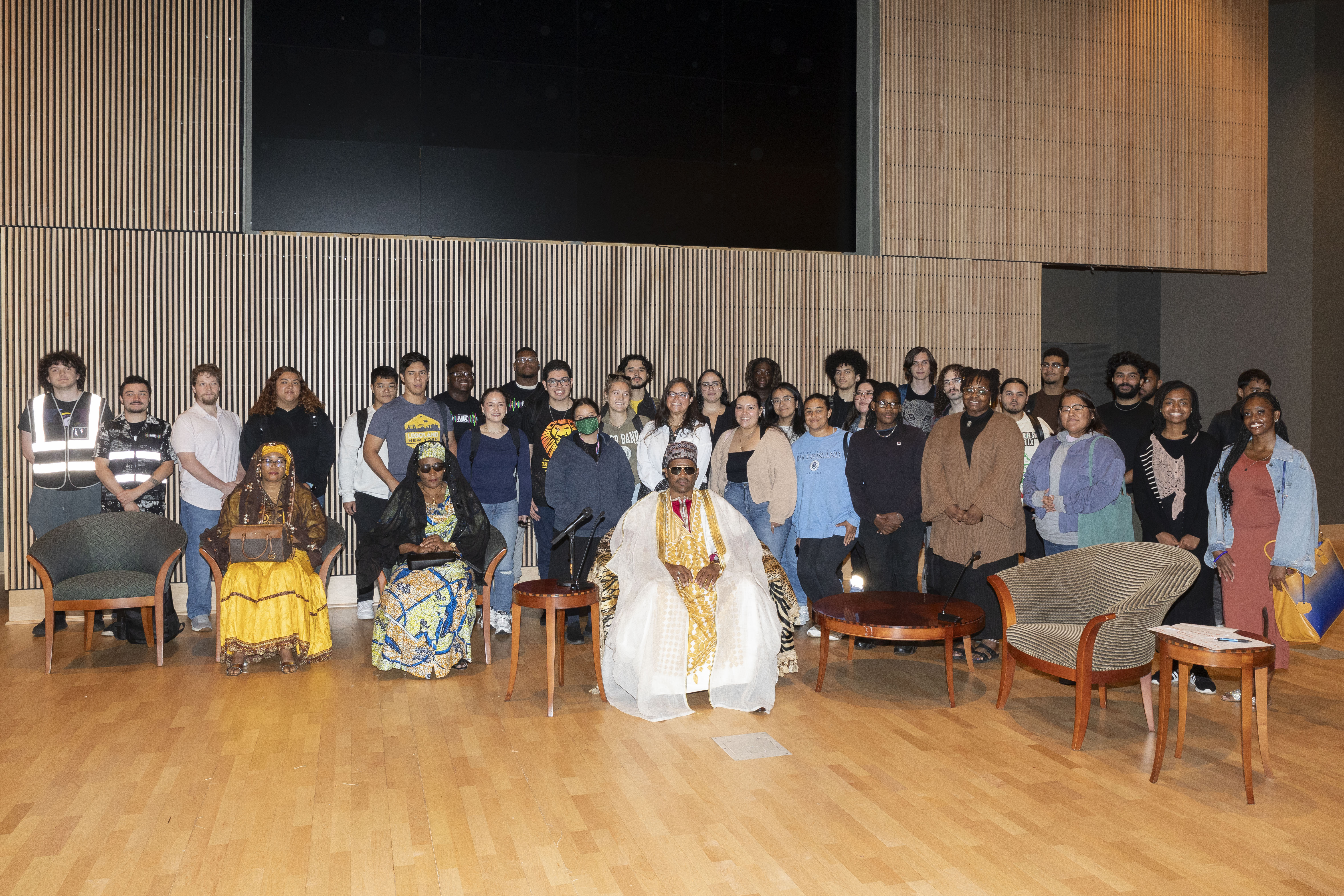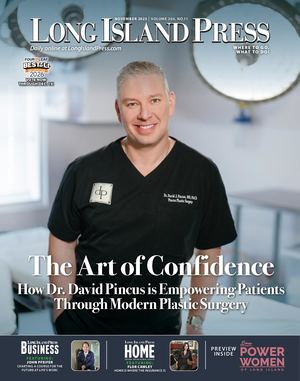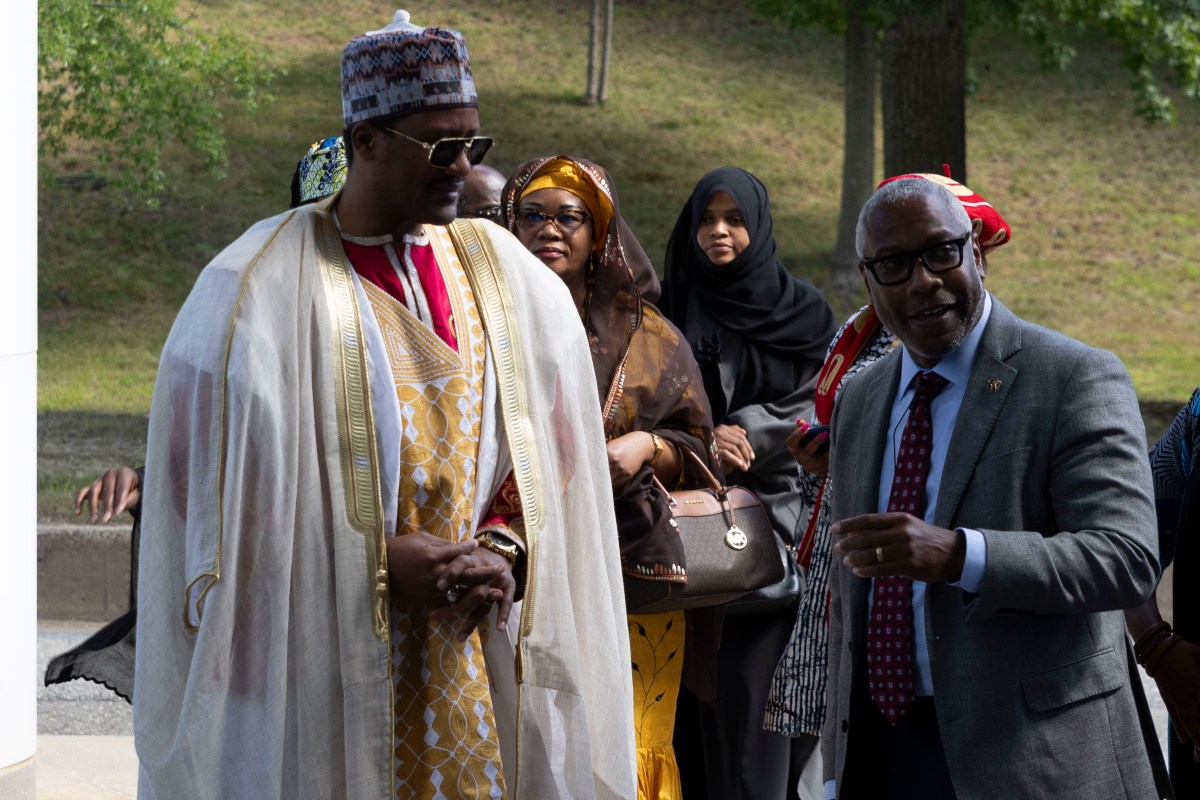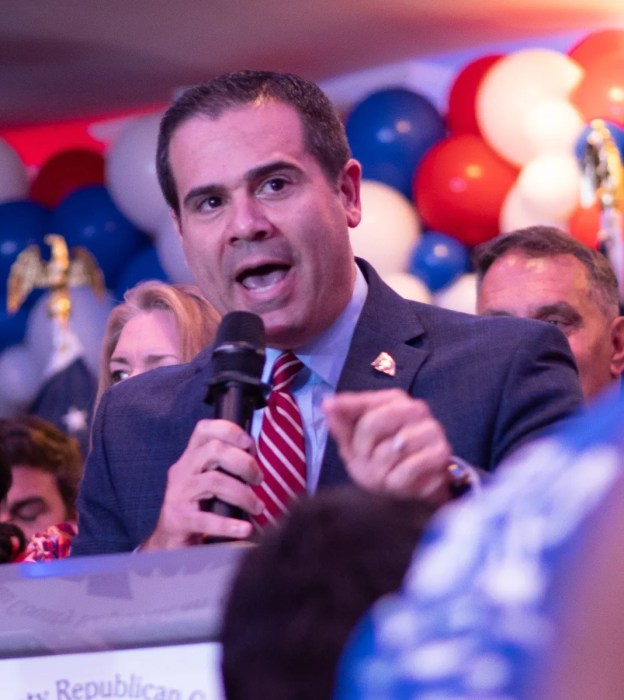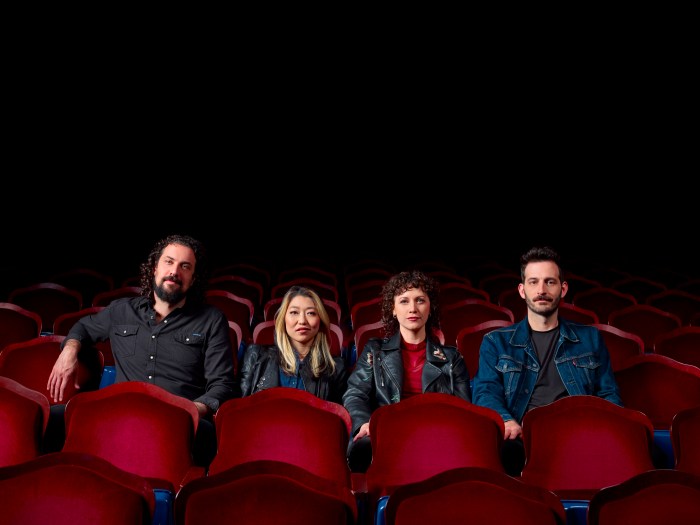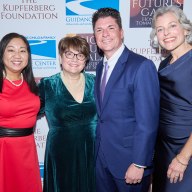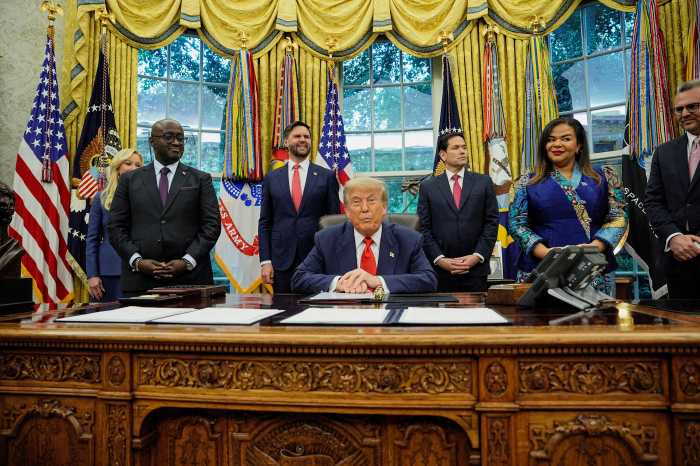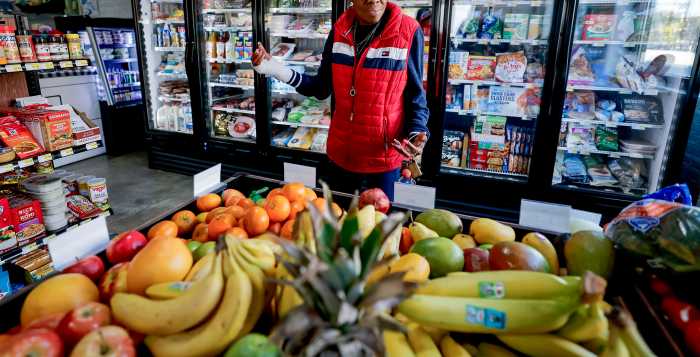SUNY Old Westbury recently hosted His Majesty and the Sultan Mouhammad-Nabil Mforifum Mbombo Njoya, king of the Bamum, during his first visit to the U.S. since his coronation in October 2021.
King Njoya, 28, is the 20th king in a ruling dynasty dating back to 1394.
Bamum is a pre-colonial African state that now makes up part of northwest Cameroon. The Bamum kingdom is one of the most famous traditional African kingdoms with the historic distinction of inventing its own phonetic script at the end of the 19th century. Current estimations show that the number of Bamum worldwide is 1.3 million people.
The previous king, El-Hadj Ibrahim Mbombo Njoya, ruled from 1992 until his death in September. The new king is the late king’s eldest son.
King Njoya has strong ties to the U.S.; he graduated from St. John’s University in 2015, majoring in networking and telecommunications and minoring in social justice theory.
During his visit to SUNY Old Westbury, Njoya sat down for an interview with professor Sylvie Kande. SUNY Old Westbury students, staff and professors came to the campus center to hear the new king discuss the nature of his visit to the U.S. and the Bamum kingdom.
Njoya said he hopes to share Bamum traditions with those he visits during his trip.
“I feel really excited to be back and feel a lot of nostalgia,” the king said.
As a new king, Njoya said his time as a university student in the U.S. impacted and informed his leadership style.
“Being in the U.S. is a lot different as an African. The American way of living is a really important role in understanding what it means to evolve to be able to assess differences and be able to improve,” Njoya said. “The [American] style, the mindset are a lot different. People are more forward; they look for results. I think we all have to care about others and move forward with a better life for others.”
Kande asked Njoya about the Bamum Museum, built by his father in 2018, and the impact of the museum on the Bamum people.
“The Bamum people’s tradition and culture comes from the king. There is a good, direct connection with the king and the Bamum people. And the people have a deep connection with the museum,” Njoya said. “The museum is a way to express relationships with the Bamum people.”
As the king is just starting his journey of leadership, he is thinking about improving the communities for the Bamum people, Njyoa said.
“I think about creating jobs and helping people,” he said. “My priority is what helps people move forward.”
SUNY Old Westbury President Timothy E. Sams asked the king what advice he would give students when they leave university and attempt to engage in other communities.
“The world is different. You have different experiences, depending on where you are depending on the history of the place where you are. I can tell you, the first thing you have to do is understand,” Njoya said. “You have to be able to accept the way people are. Understanding why people the way they are makes it easier for you.”
Njoya said that when he first came to the U.S., he didn’t speak English and had to take ESL classes to learn before studying for his degree.
“It was quite challenging, but I think the fact that I was able to accept and understand people made it easier. If not, I would have been very separate from what was going on,” he said. “I keep what I am, but I want to understand why people are the way they are.”
